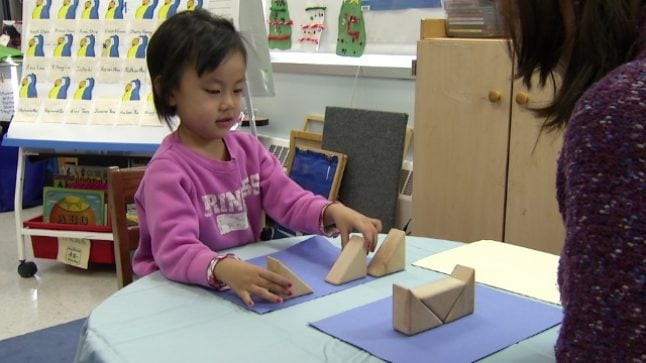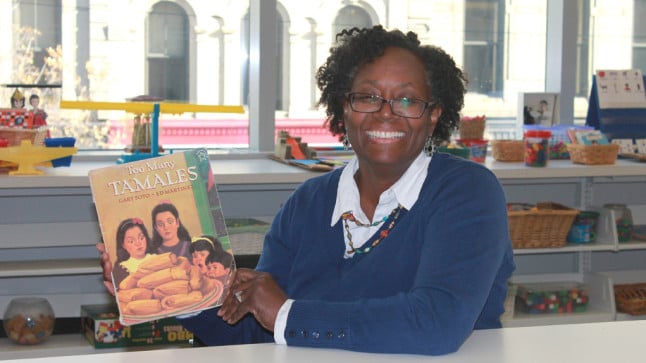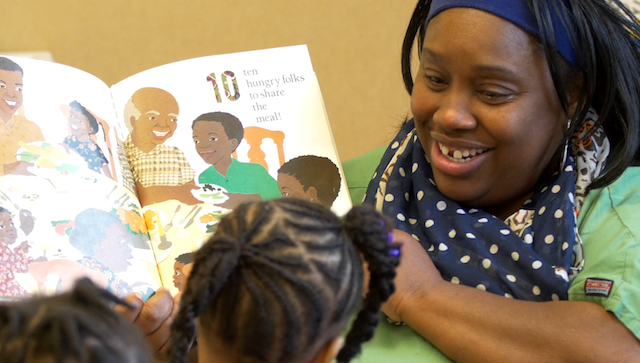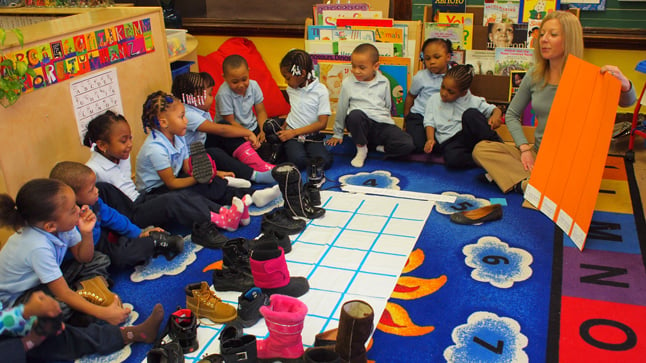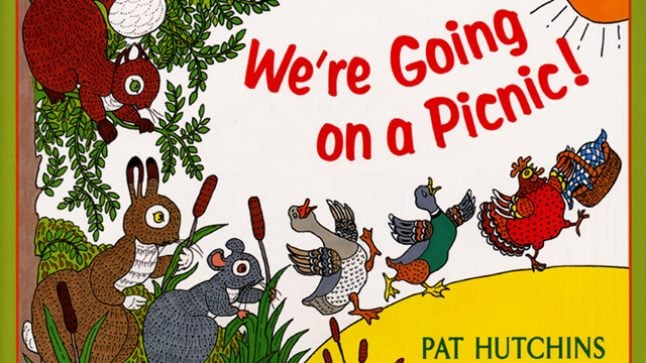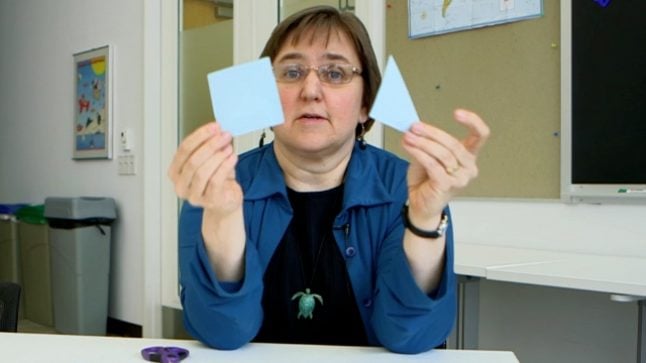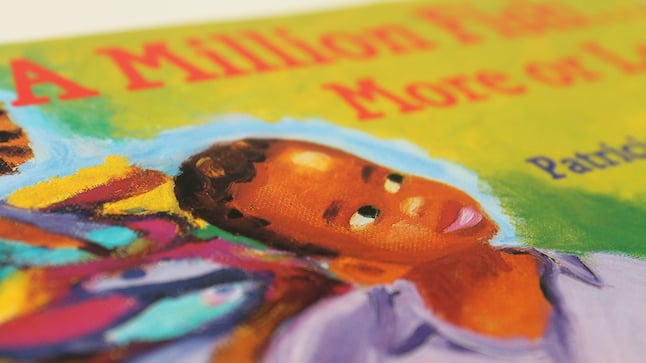Series: Focus on the Child
Transforming Three-Dimensional Shapes with Child 36
December 12, 2018
This child successfully attempts to match geo-solids using triangular prism-shaped blocks. Focus on the Child videos are taken from one-on-one interviews with individual children. The interviews are designed to elicit evidence of children’s mathematical thinking. They are not teaching episodes or formal assessments.
- Topic: Spatial Relationships, Shape
- Age/Grade Level: Pre-K, Kindergarten
- Tags English Language Learner, Child 36
Series: Book Ideas October 22, 2018
A Holiday with Too Many Tamales
How is it possible to have too many tamales? Well, Maria finds out in the holiday storybook Too Many Tamales by author Gary Soto.
- Topic: Number Operations
- Age/Grade Level: Pre-K, Kindergarten, 1st Grade, 2nd Grade, 3rd Grade
- Tags Seasonal, Food, Holiday, Books, Gary Soto, Family Math, Too Many Tamales
Series: Ideas at Work February 14, 2018
Control Your Math Fate, Estimate!
Ellen Stoll Walsh's book Mouse Count can be used in the classroom to cover such broad-ranging topics as data analysis, number sense, and number and operations. Key concepts such as estimation can be explored and…
- Topic: Data Analysis
- Age/Grade Level: Pre-K, Kindergarten
- Tags Mouse Count, Ellen Stoll Walsh, Estimation, Animals
Series: Book Ideas October 24, 2017
5 Children’s Books About Food for the Holiday Season
The holiday season usually brings with it any number of family dinners and communal feasts. For young children, this is a great time to engage in math.
Series: Book Ideas September 26, 2017
Count on Feasting: Delectable Holiday Math Activities
The holidays are coming up, and usually that involves a lot of eating. This provides plenty of opportunities to find math all around us.
- Topic: Precursor Concepts, Counting, Number Operations
- Age/Grade Level: Infants, Toddlers, Pre-K, Kindergarten, 1st Grade
- Tags Seasonal, Food, Holiday, Gary Soto, Cathryn Falwell, Too Many Tamales, Feast for 10, Mary Ann Hoberman, One of Each
Series: Ideas at Work September 20, 2017
A Flurry of Ideas for Winter Math Activities
It’s autumn, which means there’s a feeling that cold weather is on its way. A small comfort in the changing weather is that it offers some opportunities for winter math activities.
- Topic: Number Operations, Measurement
- Age/Grade Level: Pre-K, Kindergarten, 1st Grade, 2nd Grade, 3rd Grade
- Tags Nature, Graphing, Shoes, Seasonal
Series: Book Ideas May 2, 2017
It’s Picnic Time. Don’t Forget to Pack the Math!
Many classrooms are planning year-end picnics, so it’s the perfect time to read We’re Going on a Picnic! by the beloved author Pat Hutchins.
- Topic: Spatial Relationships
- Age/Grade Level: Pre-K, Kindergarten, 1st Grade
- Tags Animals, Mapping, Food, Books, Pat Hutchins, We're Going on a Picnic
Series: Hear from the Experts March 26, 2017
Tangram Puzzles: Make One For Your Kids
Instructor Lisa Ginet explains how to make tangram puzzles, an ancient Chinese game made from seven shapes cut from a square. Over 6500 different arrangements can be made from these seven simple shapes!
- Topic: Spatial Relationships, Shape
- Age/Grade Level: Adult Learners, Pre-K, Kindergarten, 1st Grade, 2nd Grade, 3rd Grade
- Tags Games
Series: Book Ideas February 22, 2017
Discussing Cultures and Shapes in A Triangle for Adaora
This delightful book emphasizes several Big Ideas in geometry, as well it provides an opportunity to explore diverse cultures and people.
- Topic: Shape
- Age/Grade Level: Pre-K, Kindergarten
- Tags A Triangle for Adaora, Books, Nature, Ifeoma Onyefulu, Culture
Series: Book Ideas February 15, 2017
Explore Estimation While Enjoying a Whopper of a Tale!
This book is a delightful way to start a discussion about estimation in the early grades. Is it reasonable that Hugh Thomas caught a million fish?
- Topic: Number Sense
- Age/Grade Level: Pre-K, Kindergarten, 1st Grade
- Tags Animals, Estimation, Subitizing, Books, Numerosity, A Million Fish...More or Less, Patricia McKissack
